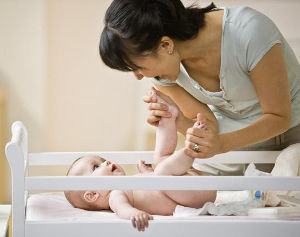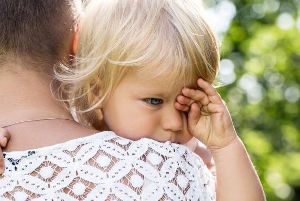If a child constantly asks for the toilet, walks sluggish and tired, there must be an explanation. Recurrent urge to urinate signals health problems. It is necessary to find out as quickly as possible the reason why the child pees too often in order to make the correct diagnosis and begin a course of therapy.
Urination rates
 Pediatricians have determined the norms of urination in children. They depend on their age and physical development. If the child is fully formed, does not get sick, adheres to the correct daily regimen, and eats well, then everything will be in order with the volume of deurination. One thing to keep in mind is that teens and adults piss less often than newborns.
Pediatricians have determined the norms of urination in children. They depend on their age and physical development. If the child is fully formed, does not get sick, adheres to the correct daily regimen, and eats well, then everything will be in order with the volume of deurination. One thing to keep in mind is that teens and adults piss less often than newborns.
Generally accepted indicators of frequency and volume of deurination:
- from birth to six months, the normal frequency of urination is at least 15 times, a maximum of 25 times during the day (the amount of one emptying varies from 20 to 40 milliliters of urine);
- from 6 to 12 months, babies pee 14-16 times a day, 30-45 ml;
- when a child turns one year old and up to 3 years old, he must write up to 10-12 times a day (the norm of urine is 50-80 ml);
- from the age of three to five years, the child “walks in a small way” only 6-8 times a day, the volume of urine is from 60 to 90 milliliters per urination;
- children from 5 to 7 years old empty 5-8 times in 24 hours (100-150 ml of urine is released during one deurination);
- from 7 to 9 years of age, the child pees 7-8 times a day, the volume of one urine excretion is 140-180 milliliters;
- when they turn 9-11 years old, people visit the toilet a little - from 6 to 7 times over 24 hours (urine indicator varies from 230 to 250 ml);
- at 11-13 years of age, it is considered normal to write 6-7 times a day with the amount of one emptying 250-270 ml.
If you start to notice that your child goes to the toilet 2-3 times per hour, this may indicate serious health problems.
Causes of frequent urination
The main reasons why young children empty their bladder more often than normal: hypothermia; taking diuretic drugs, herbs; a number of psychological reasons (stress, nerves, anxiety, depression, neurological disorders); serious diseases and pathological abnormal changes in the bladder and urinary tract.
 Parents should worry if their baby “walks small” for 3-5 days more often than usual. In this case, you need to follow the smell of urine, its color and shade. If the baby hurts while going to the toilet, he complains of burning and itching after urination, you should immediately seek medical help.
Parents should worry if their baby “walks small” for 3-5 days more often than usual. In this case, you need to follow the smell of urine, its color and shade. If the baby hurts while going to the toilet, he complains of burning and itching after urination, you should immediately seek medical help.
To find out the root cause of frequent emptying, it is recommended to pass a series of tests to obtain a complete clinical picture. The cause of the inflammatory process of internal organs may be non-observance of hygiene rules.
If the baby's diapers are not changed for a long time, then his genitals become rotten and the inflammatory process begins to intensify. Special attention should be paid to the hygiene rules of girls. If there is improper or inadequate care of your body, bacteria from the rectum can enter the genitals, which will lead to inflammation of the pelvic organs.
Diseases that cause frequent urination
One of the diseases due to which young patients suffer are infections of the genitourinary system. In this case, there is: a small volume of urine, frequent false urge to empty, pain and cramps during urine discharge.
If there are symptoms of infectious diseases, which are accompanied by an increase in body temperature, incontinence, pain in the lower abdomen and in the perineal area, a change in the color of urine - this indicates cystitis in the acute stage. An increased temperature indicates that the body is fighting the inflammatory process. In this case, it is necessary to undergo a course of treatment with medicines, which should only be prescribed by a doctor.
 Symptoms of diabetes mellitus: the child drinks large amounts of water and constantly asks to use the toilet, appetite disappears or food preferences change. Weight loss, lethargy and drowsiness are also signs of diabetes. An endocrinologist can help cure the disease.
Symptoms of diabetes mellitus: the child drinks large amounts of water and constantly asks to use the toilet, appetite disappears or food preferences change. Weight loss, lethargy and drowsiness are also signs of diabetes. An endocrinologist can help cure the disease.
Overactive bladder is a pathology that occurs in young patients aged 5-6 years. If, after this age, the frequency of emptying does not return to normal, you should consult a pediatrician or neuropsychiatrist.
The signs of bedwetting are urination that cannot be controlled. Frequent urination may hide synechia in females, hypoplasia, and other pathological changes.
Solution
According to statistics, problems with urinary excretion in childhood are observed in 1 out of 5 families.
If these problems are not related to the baby's health, then you should look for the causes of frequent urination in something else:
- first, parents should pay attention to the process of walking the little one to the potty (there are times when children want to please their parents and constantly go to the potty, because adults, when they taught the baby to it, were very happy about the success of their child);
- second - stressful situations negatively affect the well-being of the child, it is because of the psychological stress in the family that children pee in bed at night;
- third, children should not be allowed to drink 2-3 glasses of liquid before bedtime.
